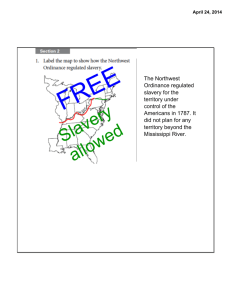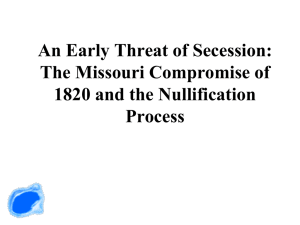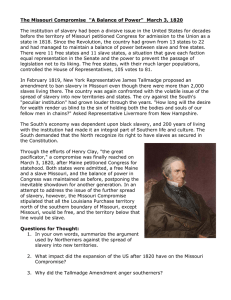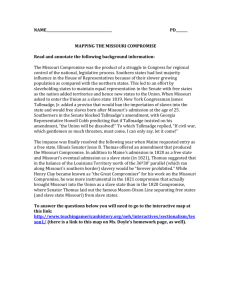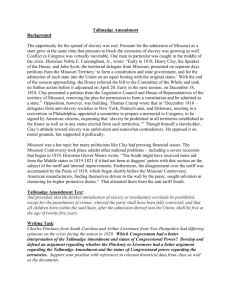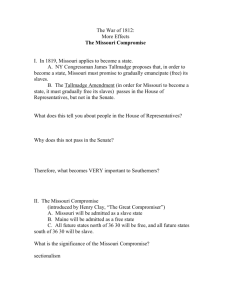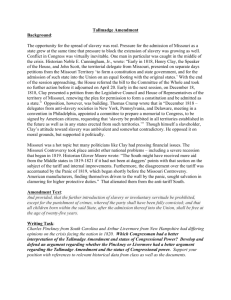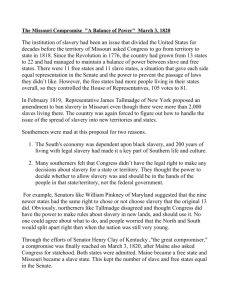Missouri Compromise
advertisement
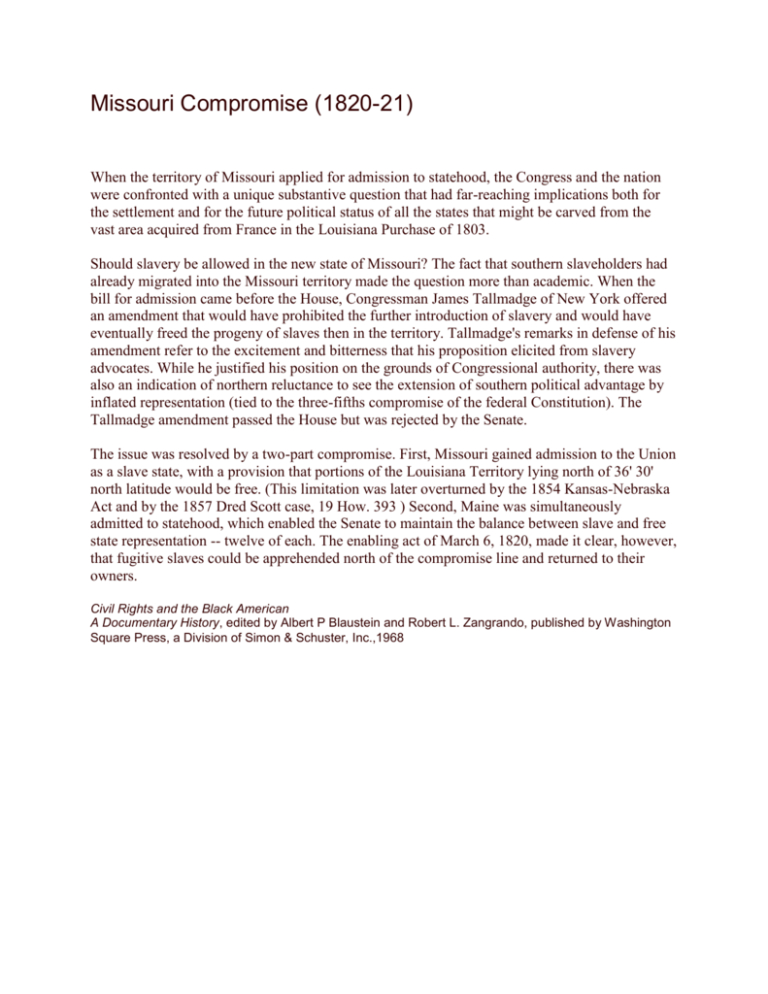
Missouri Compromise (1820-21) When the territory of Missouri applied for admission to statehood, the Congress and the nation were confronted with a unique substantive question that had far-reaching implications both for the settlement and for the future political status of all the states that might be carved from the vast area acquired from France in the Louisiana Purchase of 1803. Should slavery be allowed in the new state of Missouri? The fact that southern slaveholders had already migrated into the Missouri territory made the question more than academic. When the bill for admission came before the House, Congressman James Tallmadge of New York offered an amendment that would have prohibited the further introduction of slavery and would have eventually freed the progeny of slaves then in the territory. Tallmadge's remarks in defense of his amendment refer to the excitement and bitterness that his proposition elicited from slavery advocates. While he justified his position on the grounds of Congressional authority, there was also an indication of northern reluctance to see the extension of southern political advantage by inflated representation (tied to the three-fifths compromise of the federal Constitution). The Tallmadge amendment passed the House but was rejected by the Senate. The issue was resolved by a two-part compromise. First, Missouri gained admission to the Union as a slave state, with a provision that portions of the Louisiana Territory lying north of 36' 30' north latitude would be free. (This limitation was later overturned by the 1854 Kansas-Nebraska Act and by the 1857 Dred Scott case, 19 How. 393 ) Second, Maine was simultaneously admitted to statehood, which enabled the Senate to maintain the balance between slave and free state representation -- twelve of each. The enabling act of March 6, 1820, made it clear, however, that fugitive slaves could be apprehended north of the compromise line and returned to their owners. Civil Rights and the Black American A Documentary History, edited by Albert P Blaustein and Robert L. Zangrando, published by Washington Square Press, a Division of Simon & Schuster, Inc.,1968
